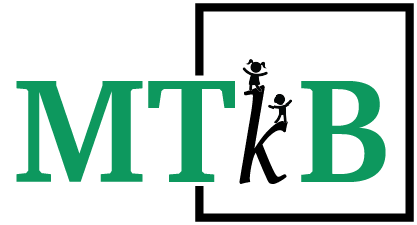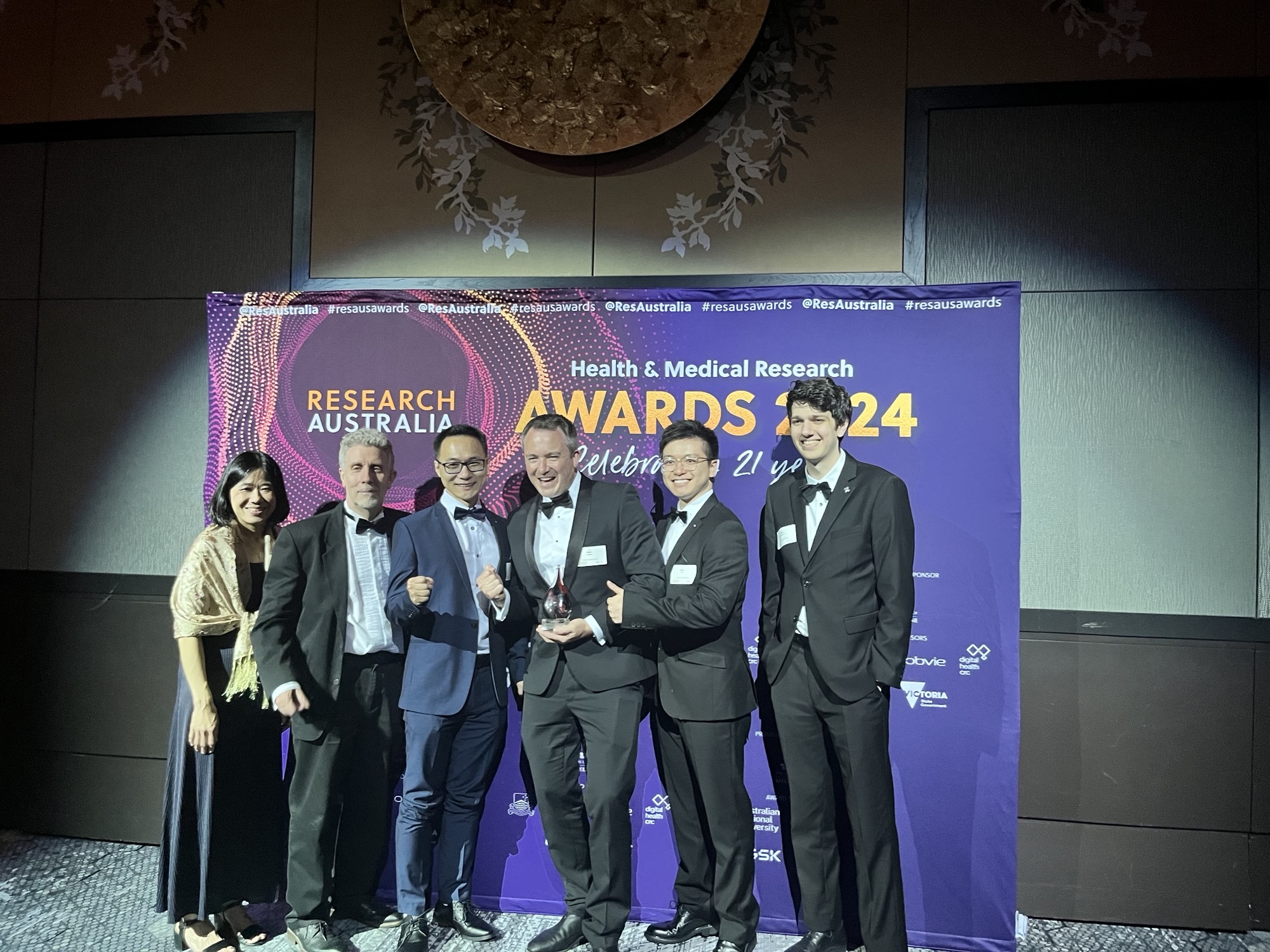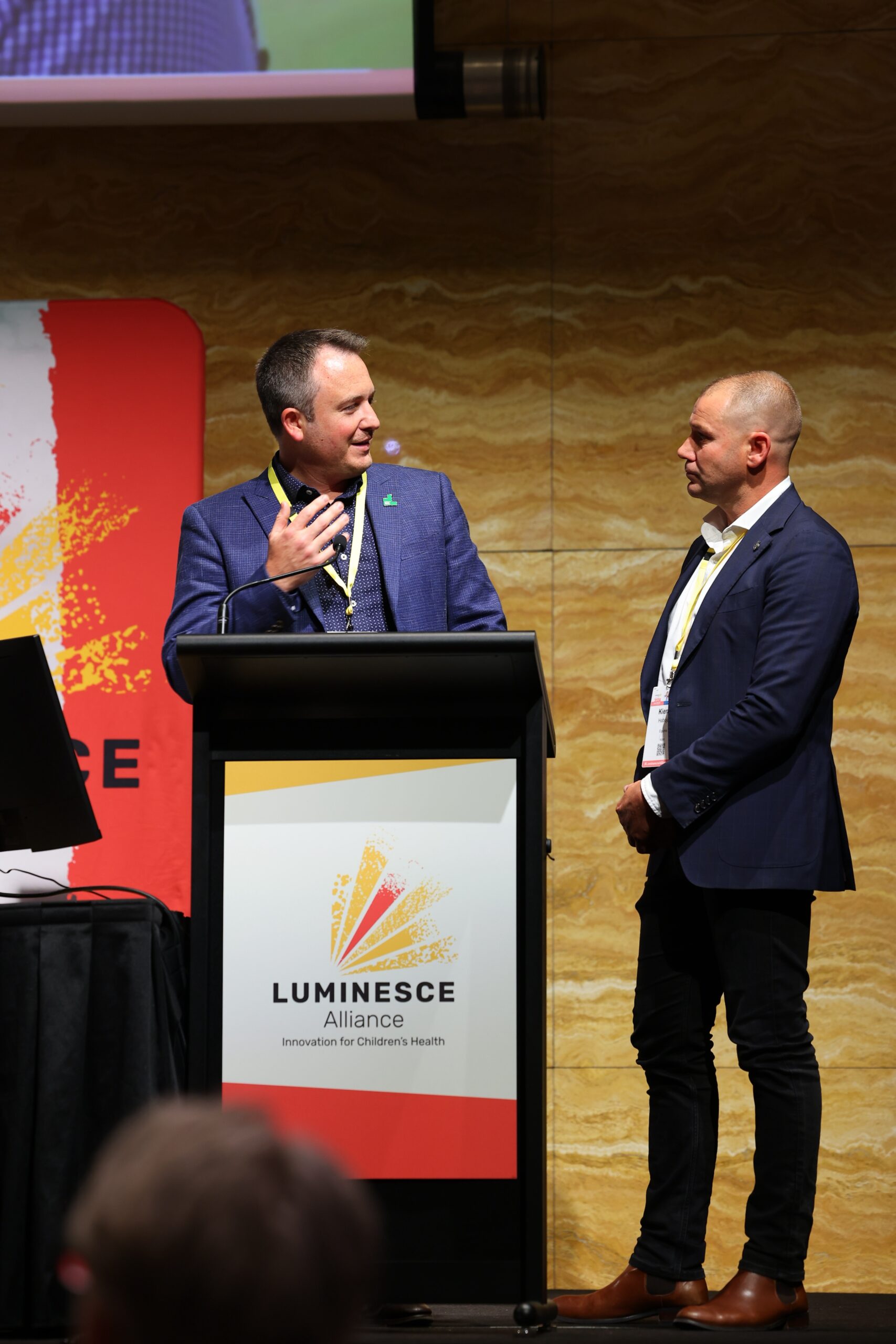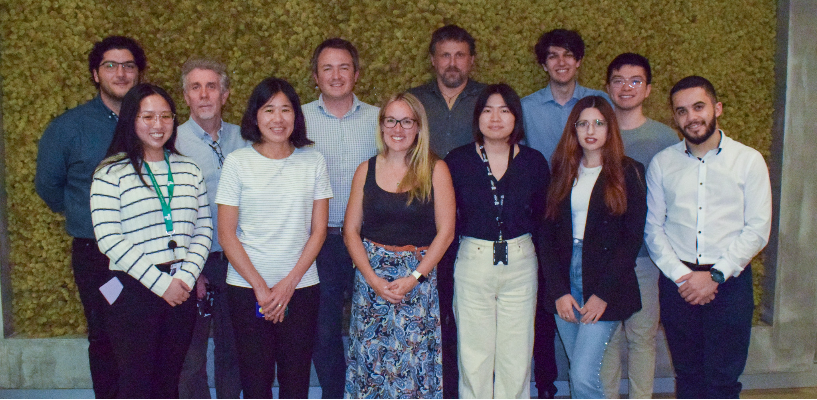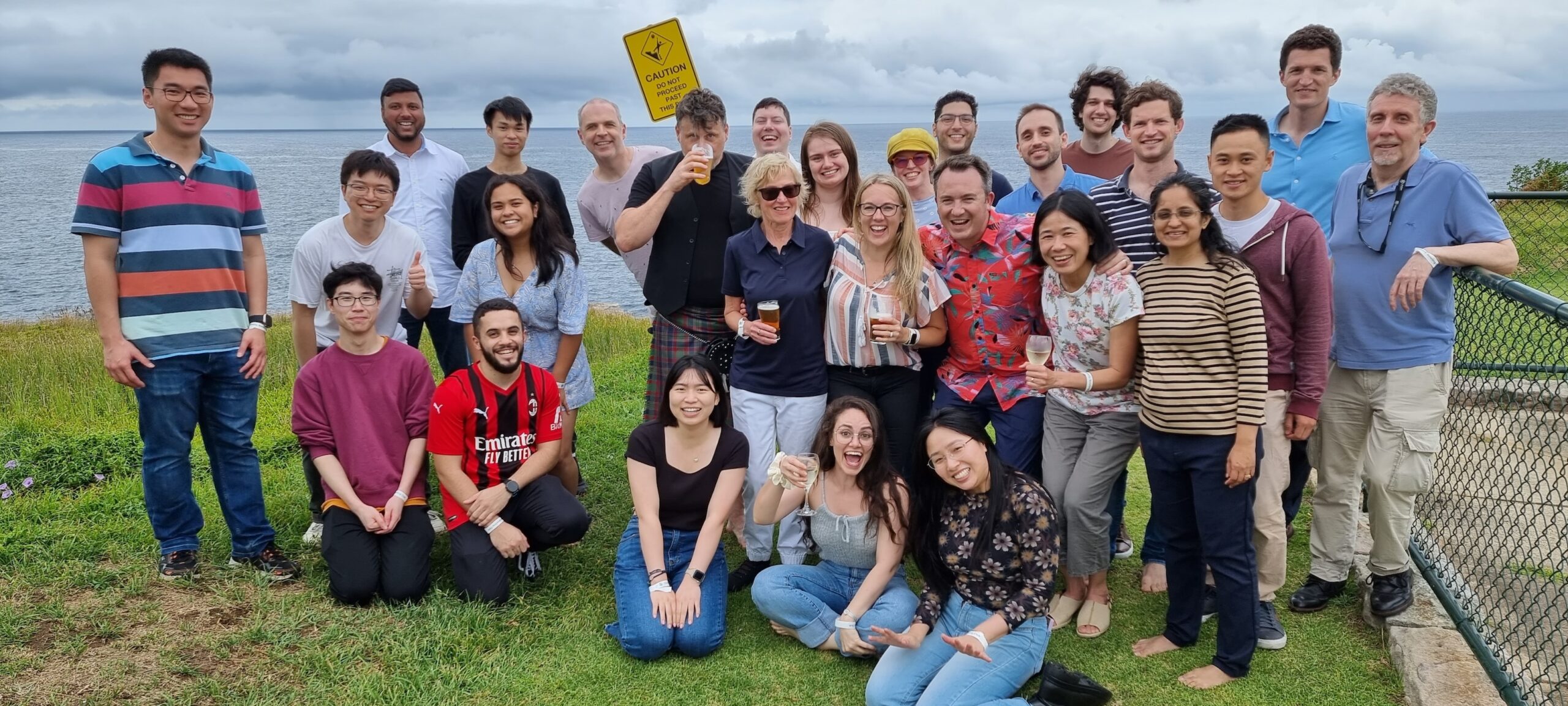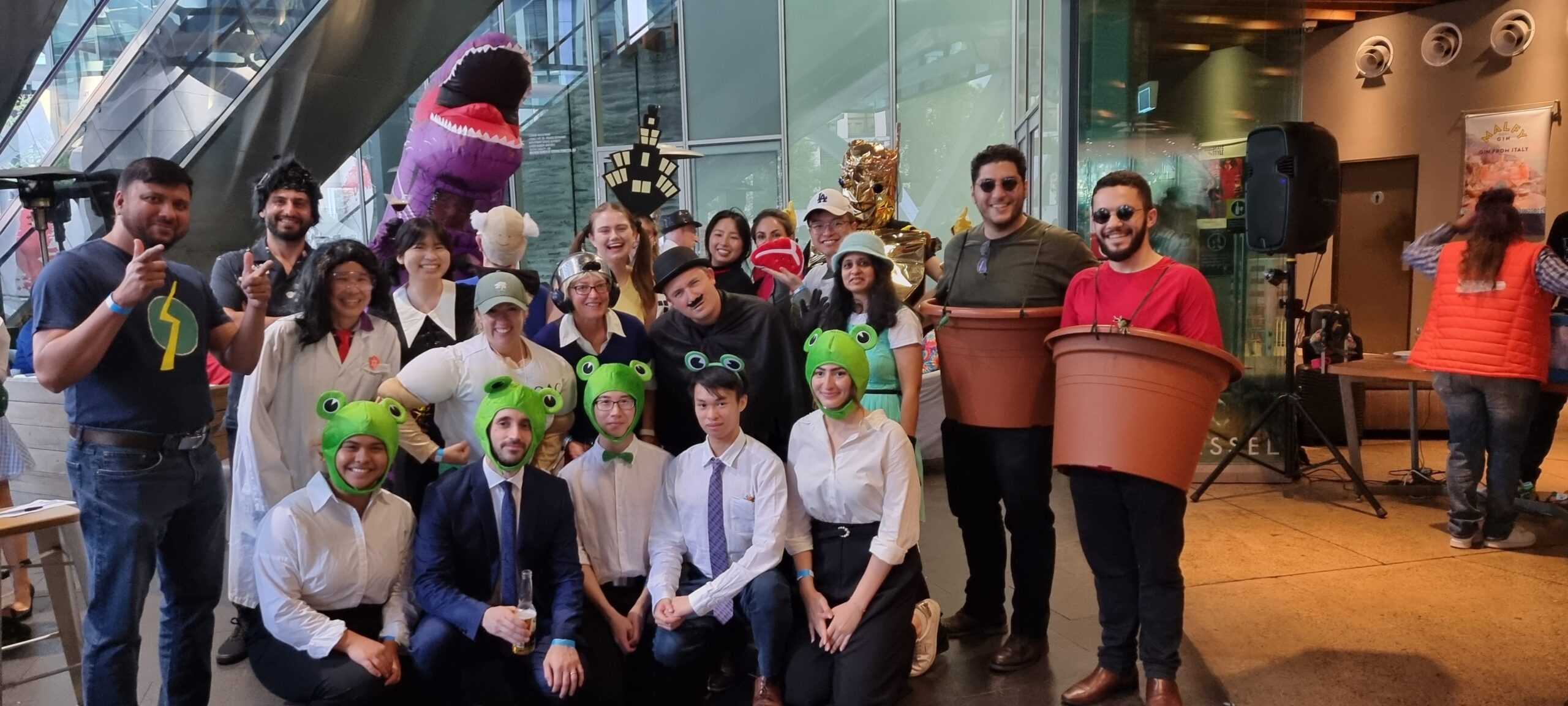Computational Biology Group
Empowering personalised childhood cancer treatment through cutting-edge computation.
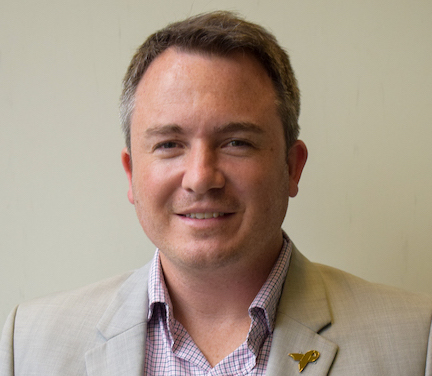
The aim is to improve outcomes for patients by understanding the molecular drivers of their tumours. We can use this data to improve outcomes in patients today, through making better treatment recommendations, as well as long-term to better understand cancer.
Group Leader
A/Prof. Mark Cowley
Explore Our Work
Research
Enabling Personalised Medicine for Paediatric Cancer
Powering ZERO – Australia’s National Paediatric Cancer Clinical Trial
Whole Genome Sequencing Analysis Methods
Decoding the Noncoding Genome
Liquid Biopsy
Tumour Immunoprofiling
Publications
Find more of Mark Cowley’s Publications at Google Scholar or Scopus
Lau, L.M,S., Quang, D.A., Mayoh, C., et al. Precision-guided treatment improves outcomes for children with high-risk cancers. Nature Medicine 30(7): 1913-1922 (2024). doi: 10.1038/s41591-024-03044-0.
El-Kamand, S., Quinn, J.M., Sareen, H. et al. CRUX, a platform for visualising, exploring and analysing cancer genome cohort data. bioRxiv (2023). https://doi.org/10.1101/2023.07.25.550585
Sullivan, P.J., Gayevskiy, V., Davis, R.L. et al. Introme accurately predicts the impact of coding and noncoding variants on gene splicing, with clinical applications. Genome Biol 24, 118 (2023). https://doi.org/10.1186/s13059-023-02936-7
Davis, R.L., Kumar, K.R., Puttick, C., et al. Use of Whole-Genome Sequencing for Mitochondrial Disease Diagnosis. Neurology 99(7): E730-E742 (2022).
Minoche, A.E., Lundie, B., Peters, G.B., et al. ClinSV: clinical grade structural and copy number variant detection from whole genome sequencing data. Genome Medicine 13(1): 32 (2021)
Wong, M., Mayoh, C., Lau, L.M.S. et al. Whole genome, transcriptome and methylome profiling enhances actionable target discovery in high-risk pediatric cancer. Nat Med 26, 1742–1753 (2020). https://doi.org/10.1038/s41591-020-1072-4
Gayevskiy, V., Roscioli, T., Dinger, M.E., Cowley, M.J. Seave: A comprehensive web platform for storing and interrogating human genomic variation. Bioinformatics 35(1): 122-125 (2019).
Kumar, K.R., Cowley, M.J., Davis, R.L. Next-Generation Sequencing and Emerging Technologies. Seminars in Thrombosis and Hemostasis 45(7): 661-673 (2019). https://doi: 10.1055/s-0039-1688446.
Minoche, A.E., Horvat, C., Johnson, R., et al. Genome sequencing as a first-line genetic test in familial dilated cardiomyopathy. Genetics in Med 21(3): 650-662 (2019). https://doi: 10.1038/s41436-018-0084-7
Ewans, L.J., Schofield, D., Shrestha, R., et al. Whole-exome sequencing reanalysis at 12 months boosts diagnosis and is cost-effective when applied early in Mendelian disorders. Genetics in Medicine 20(12): 1564-1574 (2018). doi: 10.1038/gim.2018.39
Mallawaarachchi, A.C., Hort, Y., Cowley, M.J., et al. Whole-genome sequencing overcomes pseudogene homology to diagnose autosomal dominant polycystic kidney disease. Eur J Hum Genet 24(11):1584-1590 (2016).
Waddell, N., Pajic, M., Patch, A.M., et al. Whole genomes redefine the mutational landscape of pancreatic cancer. Nature 518(7540): 495-501 (2015). https://doi: 10.1038/nature14169.
Software
Find more of our software at CCICB on GitHub
Graphene
Whole Genome Sequencing Pipeline for Paediatric Cancers
Common Workflow Language
Carbonite
RNA-sequencing Pipeline for Paediatric Cancers
Common Workflow Language
Introme
Introme prioritises coding and noncoding splice-altering variants for clinical variant interpretation
Shell
GPL-3.0
13
consHLA
A Next Generation Sequencing Consensus-based HLA Typing Workflow
Common Workflow Language
Online Tools
Publicly Available

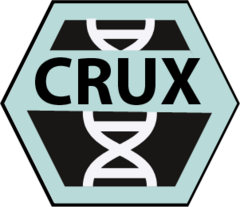
Credentials Required

